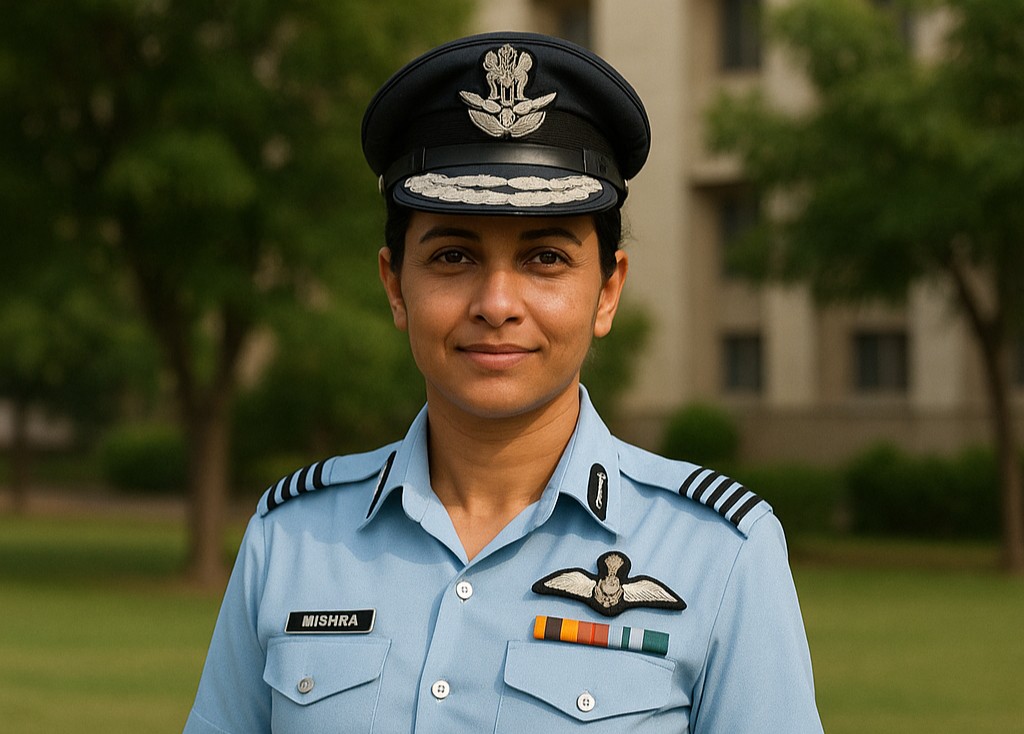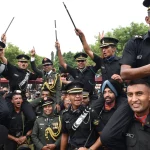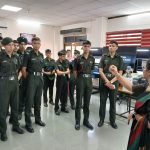Wing Commander Nikita Pandey is a seasoned officer of the Indian Air Force (IAF) who has made critical contributions in high-stakes operations like Operation Balakot (2019) and Operation Sindoor (2025). A fighter controller and one of the top-ranked officers in her field, Pandey joined the IAF through the Short Service Commission (SSC) route in 2011—a path that traditionally offers limited career progression for women.
Now, as she battles the denial of a Permanent Commission (PC), her case has reached the Supreme Court of India, emerging as a landmark in the pursuit of gender equality in the armed forces. Her story highlights systemic challenges, legal ambiguities, and the broader struggle for equitable service conditions for women in uniform.
Background: A Trailblazer in Uniform
Commissioned in 2011 through the Short Service Commission (SSC), Wing Commander Nikita Pandey has served in the Indian Air Force for over 13.5 years. A highly skilled fighter controller, she has been at the forefront of India’s air defence operations, notably operating the Integrated Air Command and Control System (IACCS), a vital technological backbone for national security. Her exemplary performance during key missions, including the 2019 Balakot airstrikes following the Pulwama attack and the 2025 Operation Sindoor, has earned her widespread recognition within the defence establishment. Yet, despite her credentials and service record, she was denied a Permanent Commission (PC), which would have allowed her to continue until retirement. The denial was based on a 2019 IAF policy that, critics argue, systematically curtails the long-term careers of women officers, regardless of merit.
The 2019 Policy: A Gendered Bottleneck
The Indian Air Force’s 2019 policy revision significantly altered the framework for granting Permanent Commissions, particularly disadvantaging women officers. Under the new rules, women serving on Short Service Commission (SSC) were no longer considered automatically eligible for Permanent Commission, in contrast to their male counterparts who could choose between SSC and a direct route to PC. As a result, even high-performing women officers like Wing Commander Nikita Pandey faced compulsory exit from service after 10 to 14 years, regardless of their operational record or merit. Critics contend that this policy not only erodes the principle of meritocracy but also entrenches systemic gender discrimination within the armed forces.
The Legal Battle in the Supreme Court
Nature of the Case
Pandey’s petition invokes Articles 14, 15, and 16 of the Constitution:
- Article 14: Equality before the law
- Article 15: Prohibits discrimination based on gender
- Article 16: Guarantees equal opportunity in public employment
The case challenges gender bias in policy implementation and denial of fair career opportunities.
Key Timeline
- 2011: Commissioned in IAF (SSC)
- May 2025: Filed petition in Supreme Court after denial of PC
- June 19, 2025: Scheduled release date stayed by Supreme Court
- August 6, 2025: Next hearing
Arguments in Court
Petitioner’s Counsel (Senior Advocate Menaka Guruswamy)
- Pointed out that Pandey ranked 2nd in national merit among air fighter controllers.
- Asserted that gender alone led to denial of PC despite exceptional service.
- Called the 2019 policy outdated and out of sync with modern operational realities.
Centre & IAF (Additional Solicitor General Aishwarya Bhati)
- Claimed Pandey was not recommended by the selection board.
- Cited the “steep pyramidal structure” of defence services—requiring periodic exits.
- Argued Pandey should have first exhausted internal appeal processes.
Supreme Court’s Interim Relief
A bench led by Justice Surya Kant and Justice N. Kotiswar Singh granted a stay on her release and issued strong remarks:
“Let’s not bring their morale down… What message are we sending to women in the services?” — Supreme Court Bench
The court:
- Directed the IAF and Ministry of Defence not to release Pandey pending a final ruling.
- Urged the Centre to consider policy reform aligning SSC intake with PC opportunities to prevent unfair inter-se merit competition.
- Kept all legal contentions open for final arguments.
Personal Story: A Symbol of Service and Resilience
Though Wing Commander Pandey has refrained from making extensive public statements, her professional record speaks volumes. With over a decade of unblemished service in mission-critical roles, she has consistently excelled in a male-dominated and technically demanding field. Her decision to challenge the denial of Permanent Commission in the Supreme Court reflects not only a personal fight for justice but also a broader struggle for dignity, equality, and recognition faced by many women in the armed forces.
Implications for the Armed Forces
The outcome of Wing Commander Pandey’s case could set a significant national precedent by ensuring equal access to Permanent Commission for deserving Short Service Commission women officers. It has the potential to pave the way for a more inclusive and merit-based framework, addressing long-standing disparities in career progression.
The case underscores the urgent need to revisit and reform defence human resource policies. Aligning these frameworks with constitutional principles and the evolving realities of military service is essential to uphold fairness and retain skilled talent across gender lines.
Denying continued service to experienced and proven officers like Pandey not only curtails individual careers but also weakens the operational integrity of the armed forces. Retention of such talent is vital to maintaining institutional knowledge, leadership continuity, and overall force readiness.
This legal battle has drawn significant media and public attention, reinforcing the broader societal belief that military service and advancement must be based on competence, not gender. It reflects a shifting public consciousness that demands equity and justice within the highest institutions of national service.
Conclusion
Wing Commander Nikita Pandey’s petition is more than a personal legal plea—it’s a litmus test for India’s commitment to gender justice in its most disciplined and respected institutions. As the Supreme Court deliberates, the defence community and citizens alike are watching closely.













